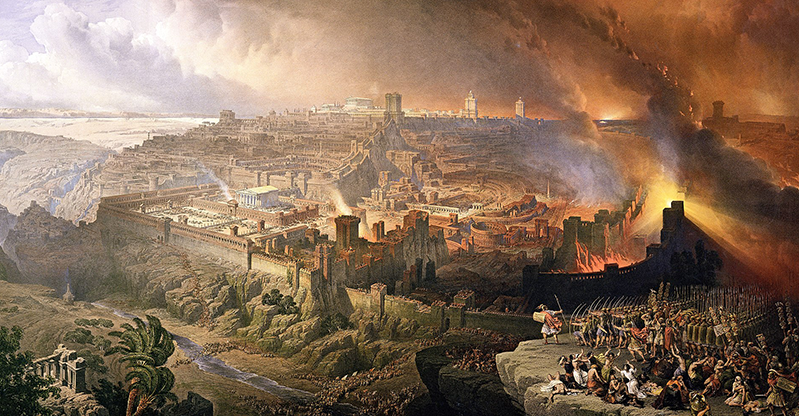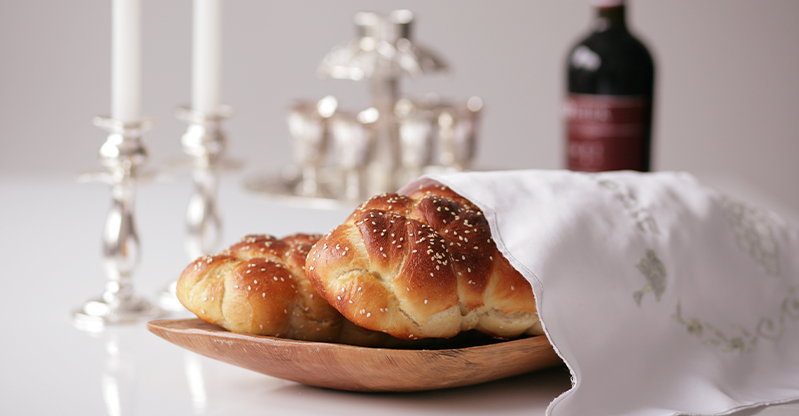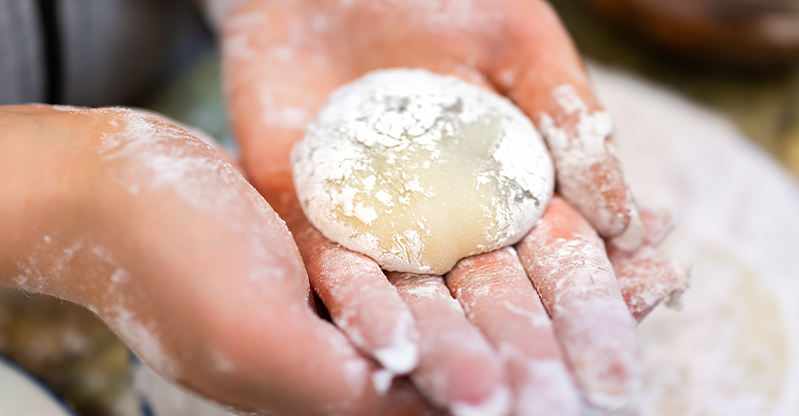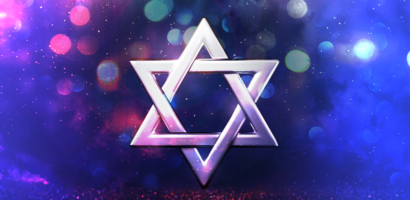How does a simple ritual involving challah, the bread we eat during the Shabbat meal, relate to the ascension of our spirituality and mental development? It’s easy to understand; it’s in the Hebrew. As you know, Hebrew is a rich language with a lot more depth and meaning in even the use of a single letter. This relates to the example of a ritualistic practice performed in the making of the challah bread. It concerns both tragedy and hope.
What the Jewish people lost tragically
During the fires of rebellion against the might of the Roman Empire in the 70s ACE (after common era), the Second Temple of the Jews was destroyed in a prolonged and violent siege, with Roman legionnaires planting primitive explosives into the walls, detonating them like a firecracker in a clenched fist.
They also inadvertently curtailed the functions of the Cohanim, the Judaic priest class, removing an entire important aspect of Judaism that Jews mourn to this day — as it was seen as a direct connection to the Almighty God of their religion. How does the humble challah fit into this? Well, as part of the Jewish custom of not working one day of the week — the seventh day of rest, which is a holy day — the challah is an important part of this custom.
But traditionally, in the making of the challah, a piece of dough was separated and given to a holy man, the cohen (Jewish priest) we mentioned earlier, to consume. This sanctified the challah for the Shabbos meal, making it kosher to eat as an important part of the evening’s meal.
This ritual is known as Lehafrish in Hebrew. It literally means to “single out”. A special piece of the dough to go to our worldly connection to God, the Jewish priest. Sadly, that connection was severed when the Romans sacked Jerusalem and destroyed the Temple in retribution for the Jewish rebellion.

The ritual continues to this day
In some aspects, Judaism is a memorial religion, remembering and mourning the past, the so-called Golden Age of the Temple, the worldly link to the divine. This mourning is present in much of our rituals. For instance, in a Jewish wedding, once it has been completed, a glass of wine is covered with cloth and is stamped on it, shattering it. It is a reminder that even during the happiest occasions of our lives, there is still the overshadowing of tragedy.
How this plays out with Lehafrish is, the dough is still separated from the rest of the challah. But as there’s no longer a priest class to give the dough to, it is rather burnt to ash. This sad memorial is intended until the Jewish messiah comes, rebuilding the temple in their wake. So Judaism is a religion of hope as well.

Subscribe to our newsletter
Learn Hebrew slang, take a virtual tour across Israel, discover the best local food and so much more
But it’s the meaning of Lehafrish that rises like dough in an oven
Lehafrish, as we mentioned, means to “single out”. But it has connotations connected to that. Being singled out, in this context, is a positive. It means being chosen for a higher purpose. As originally intended, it was the piece of dough intended to create a sense of ascension as challah is a sanctified bread. That’s why Jews eat it at the Shabbos meal. It even receives its own blessing.
So, lehafrish is a word with dense meaning. It is part of the elevation of the spirit of the challah. Making the bread more than just any other baked good. But holy.
This is the nature of the Hebrew language. Words like lehafrish are packed with significance. This is true for almost all of the words in the vocabulary. Even individual letters have a deeper meaning. This becomes apparent as one studies Hebrew as a language through an Ulpan course. And the more one learns, the more poetic and richer in context life becomes. Like the challah through the lehafrish process, reality becomes sanctified.

You too can experience the deeper meaning of life through Hebrew
Whether or not you actually plan to visit or live or work in Israel, knowing the language will alter you and your perceptions of reality. There are many benefits to learning a second language, but Hebrew is especially powerful in this respect. It’ll provide you with a new way of thinking. Like the lehafrish ritual, it will elevate you and help you ascend in your worldview. It will deepen the hues and colors of the planet we live on.
And it’s easier than ever to jump straight into learning this beautiful, poetic language. Do it through Rosen School of Hebrew, where our unique teaching methods involve immersion into the language. This helps you incorporate it into your life that much faster. And all our teachers are passionate and certified, native-Hebrew speakers who will assist you in our live, online classes. Classes where you will join like-minded classmates like you, just as eager to learn, and keen to expand their worldly view through the lens of a new language. One that won’t just get you talking in a new tongue, but elevate your experience of the world. Sign up for one of our courses here.













